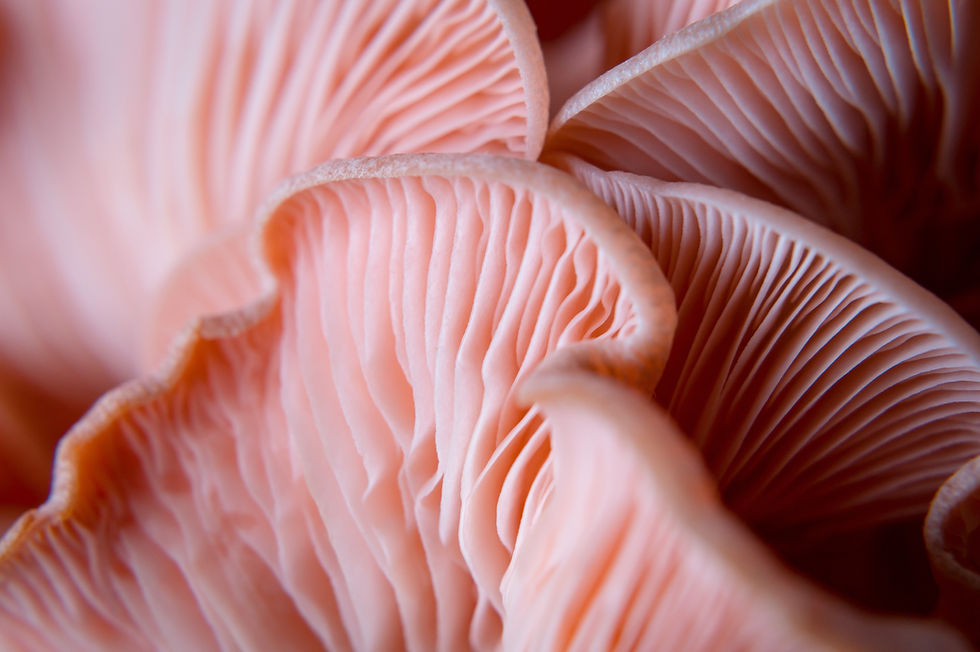Navigating Perimenopause: What to Expect and How to Thrive - A Naturopath's Perspective
- sophieprager
- Oct 15, 2024
- 4 min read

As women, we experience various stages in our hormonal journey, each with unique changes and challenges.
Perimenopause is definitely in the top 3 (the other two are puberty, pregnancy/post-partum - just in case you were wondering!)
Often misunderstood and very often dismissed, perimenopause can last for years and impacts every woman differently. This stage, however, isn’t only about managing symptoms – it’s also about embracing a new phase of life and health.
What is Perimenopause?
Perimenopause, sometimes referred to as the “second puberty" is the stage before menopause. It marks the period when hormone levels (mainly oestrogen and progesterone) begin to fluctuate, gradually leading to the end of what is considered our 'fertile' life phase. During this time, many women experience symptoms that can range from minimal, challenging or life-altering. Our advice?
Having the right toolkit for the journey (spoiler- this toolkit includes understanding how this process impacts your hormones and body, what you can do from a diet and lifestyle perspective, and then of course, herbs and supplements which act as a lifeline) is the absolute game changer.
When Does Perimenopause Start?
Perimenopause can start at different ages, with most women beginning to notice signs in their 40s. However, it can start as early as our 30s, especially for those with specific genetic, lifestyle, or health factors. For many, the changes in hormones can be subtle at first, and symptoms might seem mild and sporadic. By the late 40s, however, these shifts typically become more defined.
The perimenopausal phase can last 4-8 years, but can range from a few months to over a decade for some women. For most, menopause (aka the official end of perimenopause) occurs around the age of 51. It’s important to remember that menopause is only reached after 12 consecutive months without a menstrual period, marking the end of perimenopause, and the start of menopause.
Common Symptoms of Perimenopause
Hormonal fluctuations during perimenopause can trigger a variety of symptoms, including:
Irregular periods: Cycles may become shorter or longer, with heavier or lighter bleeding.
Hot flashes and night sweats: These are common, and can vary widely in intensity and frequency.
Mood changes: Anxiety, irritability, 'rage' and mood swings are often reported due to hormonal shifts and fluctuations. Some can also experience grief or a sense of loss.
Sleep disturbances: Insomnia or frequent waking can disrupt sleep quality, impacting mood and energy, and fuelling a vicious cycle. Everything is worse when we are sleep deprived!
Weight gain: Metabolism and insulin sensitivity tends to change, resulting in changes to body composition and often causing us to gain weight around the middle which is difficult to shift.
Lower libido: Fluctuations in sex hormones can affect desire & intimate relationships.
Vaginal dryness and changes in skin elasticity: Oestrogen levels play a role here, influencing tissue health and hydration. Many notice physical changes in facial appearance due to the heavy decline in collagen production during this time period, and symptoms such as vaginal irritation, or even urinary incontinence (also known as 'surprise wee' with a cough, sneeze or laugh).
How Naturopathic Support Can Help
The changes of perimenopause can feel overwhelming, but naturopathic approaches can provide relief and help you navigate this transition with a more holistic, balanced approach. Here’s a breakdown of some supportive strategies:
Nutrition: A diet rich in whole foods, fibre, and phytoestrogens (like flaxseeds, organic tofu/tempeh and tahini) can help support hormones and manage symptoms. Minimising sugar, caffeine, and alcohol also stabilise fluctuations in mood, energy, sleep and other symptoms.
Herbal Support for Hormone and Adrenal Health
Botanical Medicines are a powerful ally during perimenopause, helping to balance hormones, support adrenal health, and increase resilience to stress. By nourishing the adrenal glands, they help regulate mood, reduce hot flashes, and improve sleep. Many herbs also aid in balancing oestrogen and progesterone levels, easing symptoms like night sweats and irritability. Since each person's needs are unique, and herbal medicines are wonderful when chosen correctly, working with a qualified naturopath ensures the right herbs and dosages to support your body safely and effectively.
Stress Management: Practices like yoga, meditation, and breathwork can lower cortisol levels, helping to reduce hot flashes, anxiety, and other stress-related symptoms. Lowering cortisol also helps support healthy progesterone levels, which drop during perimenopause.
Sleep Support: Good sleep hygiene – like setting a consistent bedtime, limiting screen time before bed, and creating a calm sleep environment – is crucial for managing the sleep disruptions common in perimenopause. Supplements like magnesium glycinate and melatonin can also support better sleep.
Exercise and Movement: Regular exercise supports lean muscle mass, metabolism, bone density, and mood stability. Resistance exercise, walking in nature (find some good hills with lots of trees!), and restorative movement like yin yoga are our favourites to combine.
Embracing the Journey
Perimenopause, while challenging, can also be a time of incredible liberation and growth. Learning to listen to your body and respond to its needs with compassion is a powerful tool. Working with a naturopathic practitioner can make this transition smoother, providing personalized guidance to help you thrive during this time of life.
If you’d like support with your unique perimenopausal journey, book a 1:1 consultation with our team. Together, we can create a personalized plan to help you feel empowered, informed, and balanced through every stage.





Comments